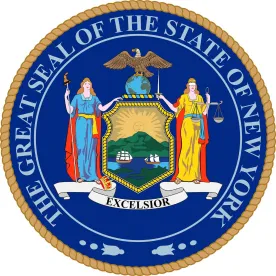On September 15, 2023, New York Governor Kathy Hochul signed into law a new section of the New York Labor Law limiting the assignment of inventions by employees to their employers. Specifically, Section 203-f of the Labor Law renders unenforceable provisions in employment agreements that require employees to assign certain inventions to their employer which were developed using the employee’s own property and time. The new law became immediately effective upon Governor Hochul’s signing.
New Labor Law Section 203-f bans the enforcement of invention assignment agreements that entitle employers to intellectual property developed by employees entirely on their own time without using their employer’s equipment, supplies, facilities, or trade secret information; unless the invention relates at the time of conception or reduction to practice of the invention to the employer’s business, or actual or demonstrably anticipated research or development of the employer, or if the invention results from any work performed by the employee for the employer.
Section 203-f further provides that a requirement in an employment agreement that an employee assign, or offer to assign, any of his or her rights in an invention developed on his or her own time to an employer is against New York State public policy and shall be unenforceable. Notably, Section 203-f does not state that such a provision renders an entire employment agreement unenforceable if it contains such a provision and does not create a private right of action.
The new bill was originally sponsored by New York State Senator Jessica Ramos from the 13th Senate District. State lawmakers approved the legislation in June 2023 after other States, including California, Illinois, New Jersey, and Nevada approved similar protections.
In fact, the bill provides protections similar to California’s Labor Code Section 2870. However, the New York legislation differs from its California counterpart in that California Labor Code Section 2870 includes language that explicitly allows employers to require employees to disclose all inventions employees develop during the term of their employment. California also places a burden on employees to prove that their inventions are not covered by their employee invention assignment agreement.
As a result, employers should review their employment agreements in New York to ensure they comply with the new law and draft any new agreements accordingly. Jackson Lewis attorneys continue to monitor further developments.





 />i
/>i

